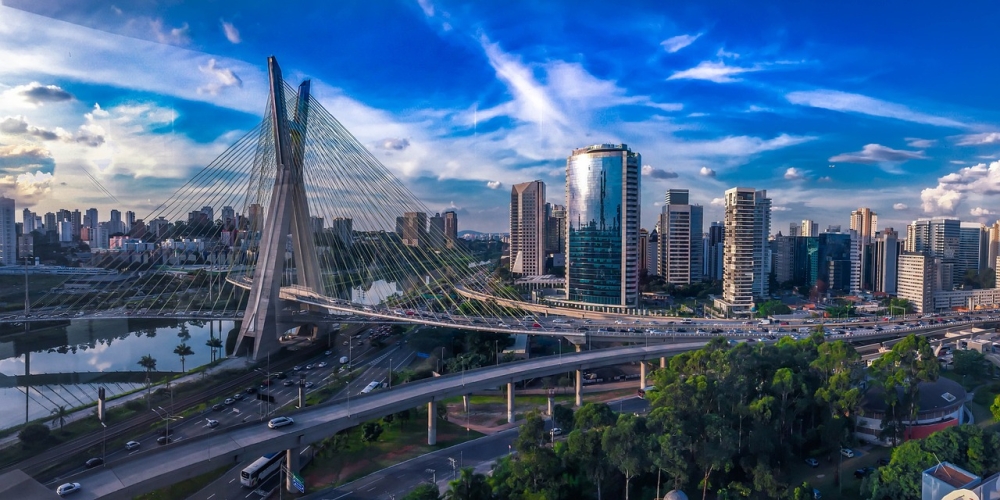Buying a house is an exciting milestone, and if you’re considering purchasing a property in the Philippines, it’s essential to be well-prepared.
Navigating the real estate market and understanding the Philippine home buying process can be overwhelming, but with the right information and careful financial planning, you can make this journey smoother. This comprehensive guide aims to help you prepare your finances for a successful home purchase in the Philippines.
From key home buying factors to considerations before buying a home, we’ll provide expert insights tailored to the local market. So, let’s delve into the steps that will pave the way to your dream home!

Assessing Your Financial Situation
Before embarking on your home buying journey in the Philippines, it’s crucial to assess your financial situation. Understanding where you stand financially will help you determine how much you can afford and set realistic goals.
Here are some key steps to consider:
Calculate your budget:
Start by evaluating your income, expenses, and existing financial commitments. This will give you a clear picture of your monthly cash flow and help you determine how much you can allocate towards your new home.
Evaluate your credit score:
Your credit score plays a significant role in the mortgage approval process. Obtain a copy of your credit report and review it carefully.
Address any errors and take steps to improve your credit score if needed.
Determine your debt-to-income ratio:
Lenders assess your debt-to-income ratio to gauge your ability to handle mortgage payments. Calculate this ratio by dividing your total monthly debts by your gross monthly income.
Aim for a ratio below 43% for a stronger loan application.
Saving for a Down Payment
Saving for a down payment is a critical step in preparing your finances for a home purchase in the Philippines. The down payment amount will depend on various factors such as the property price and loan requirements.
Here’s how you can start building your down payment fund:
Setting a savings goal:
Determine the target amount you need to save for your down payment. Consider the property prices in your desired location and aim to save at least 20% of the purchase price for a conventional mortgage, although some lenders may accept a lower percentage.
Creating a budget for saving:
Review your expenses and identify areas where you can cut back to allocate more funds towards your down payment. Set a monthly savings target and track your progress regularly.
Consider automating your savings by setting up automatic transfers to a dedicated savings account.
Exploring down payment assistance programs in the Philippines:
Research government programs or initiatives that offer down payment assistance to eligible homebuyers. These programs can provide financial support or low-interest loans that can help supplement your savings.
Remember, saving for a down payment requires discipline and long-term planning. By diligently setting aside funds, you’ll be one step closer to achieving your goal of homeownership in the Philippines.
Understanding Mortgage Options

When preparing your finances for a home purchase in the Philippines, it’s crucial to understand the various mortgage options available to you. Familiarizing yourself with these options will enable you to make an informed decision that aligns with your financial goals.
Consider the following aspects:
Types of mortgages available in the Philippines:
Research and compare different mortgage types, such as fixed-rate mortgages, adjustable-rate mortgages, and government-backed loans like Pag-IBIG Fund. Each option has its own terms, interest rates, and eligibility requirements.
Researching interest rates and loan terms:
Stay updated on current interest rates offered by different lenders in the Philippines. Explore loan terms that suit your financial capacity and repayment preferences.
Compare the benefits and drawbacks of each option.
Prequalifying for a mortgage:
Contact lenders and apply for mortgage prequalification. This process involves providing your financial information to assess your eligibility for a loan.
Prequalification can give you an estimate of the loan amount you may qualify for, helping you set realistic expectations.
Managing Existing Debts
Before embarking on a home purchase in the Philippines, it’s crucial to evaluate and manage your existing debts. Effectively managing your debts will not only improve your financial health but also enhance your eligibility for a mortgage.
Consider the following steps:
Evaluating current debts:
Take stock of your existing debts, including credit card balances, student loans, car loans, and any other outstanding loans. Review the interest rates, repayment terms, and monthly obligations associated with each debt.
Strategies for debt reduction:
Develop a plan to pay off your debts systematically. Consider prioritizing high-interest debts first, as reducing these can significantly improve your financial situation.
Explore strategies such as debt consolidation, balance transfers, or negotiating with creditors to reduce interest rates or payment amounts.
Impact of existing debts on mortgage eligibility:
Lenders assess your debt-to-income ratio to evaluate your ability to take on additional debt. By reducing your existing debts, you can improve this ratio and increase your chances of qualifying for a mortgage with favorable terms.
Managing existing debts is crucial for a smooth home purchase journey in the Philippines. By addressing your debts and improving your financial standing, you’ll not only enhance your eligibility for a mortgage but also set a solid foundation for successful homeownership.
Building a Strong Credit Profile

Building a strong credit profile is essential when preparing your finances for a home purchase in the Philippines. Lenders assess your creditworthiness before approving a mortgage, making it crucial to maintain a healthy credit score.
Consider the following steps to strengthen your credit profile:
Importance of a good credit score:
Understand the significance of a good credit score in obtaining favorable loan terms. A higher credit score demonstrates your ability to manage credit responsibly, instilling confidence in lenders.
Tips for improving your credit score:
Take proactive steps to improve your credit score. Pay your bills on time, reduce credit card balances, and avoid opening new lines of credit unnecessarily.
Regularly review your credit report for errors and dispute any inaccuracies.
Maintaining a healthy credit profile:
Continuously monitor your credit usage and aim to keep your credit utilization ratio below 30%. Avoid closing old credit accounts as they contribute to the length of your credit history.
Use credit responsibly and refrain from excessive borrowing.
By building a strong credit profile, you enhance your chances of securing a favorable mortgage in the Philippines. Start early, be consistent with your credit management, and strive to improve your creditworthiness to achieve your home buying goals.
Exploring Government Programs and Incentives

When preparing your finances for a home purchase in the Philippines, it’s important to explore the various government programs and incentives available to assist homebuyers. These programs can provide valuable support and financial benefits.
Consider the following aspects:
Philippine government housing programs:
Research government initiatives such as the Socialized Housing Program, Pag-IBIG Fund, and the Community Mortgage Program. These programs offer affordable housing options, subsidies, and financial assistance for eligible individuals or families.
Tax incentives for homebuyers:
Familiarize yourself with tax incentives provided by the Philippine government to promote homeownership. These incentives may include exemptions or reductions in transfer taxes, capital gains taxes, or documentary stamp taxes.
Researching eligibility and requirements:
Understand the eligibility criteria and requirements for each government program or incentive. Determine if you meet the necessary qualifications and gather the required documents to take advantage of these opportunities.
Seeking Professional Financial Advice
When preparing your finances for a home purchase in the Philippines, it’s beneficial to seek professional financial advice. Consulting with a reputable financial advisor can provide valuable insights and guidance throughout the process.
Consider the following points when seeking professional financial advice:
Benefits of consulting with a financial advisor:
A financial advisor can help you navigate the complexities of home buying, offer personalized guidance, and provide expertise on managing your finances effectively. They can assist in assessing your financial situation, creating a realistic budget, and identifying suitable mortgage options.
Finding a reputable financial advisor in the Philippines:
Conduct thorough research to find a reputable financial advisor who specializes in real estate and has experience in the Philippine market. Look for credentials, certifications, and client reviews to ensure their credibility and expertise.
Questions to ask during a consultation:
Prepare a list of questions to ask the financial advisor during your consultation. Inquire about their experience, services offered, fee structure, and how they can assist you in achieving your home buying goals.
Finalizing Your Home Purchase

After careful planning and consideration, the time comes to finalize your home purchase in the Philippines. This stage involves several important steps to ensure a smooth transaction and protect your interests.
Consider the following aspects as you navigate the finalization process:
Evaluating home affordability:
Before proceeding, re-evaluate the affordability of the property. Consider the total cost of ownership, including mortgage payments, property taxes, insurance, and maintenance expenses.
Ensure that your budget can accommodate these costs comfortably.
Negotiating the purchase price:
Engage in negotiations with the seller to reach a mutually acceptable purchase price. Consider factors such as market value, property condition, and any necessary repairs or renovations.
Work closely with your real estate agent to advocate for your interests during this stage.
Reviewing legal and financial documents:
Carefully review all legal and financial documents associated with the home purchase. This includes the sales contract, property title, loan documents, and any other agreements.
Seek legal advice if necessary to ensure your rights and interests are protected.
Wrap-Up and Summary
Congratulations on reaching the conclusion of this comprehensive guide on preparing your finances for a home purchase in the Philippines. Throughout this journey, we have explored essential aspects such as assessing your financial situation, saving for a down payment, understanding mortgage options, managing existing debts, building a strong credit profile, exploring government programs and incentives, seeking professional financial advice, and finalizing your home purchase.
By following the steps outlined in this guide, you have equipped yourself with the knowledge and tools necessary to make informed decisions and navigate the home buying process with confidence. Remember to consider key home buying factors and make thoughtful considerations before making your final decision.
Now, armed with a solid financial plan, a clear understanding of the Philippine real estate market, and the support of professionals, it’s time to turn your dream of homeownership into a reality. Take action, connect with reputable real estate agents, lenders, and financial advisors who can assist you along the way.
We wish you the best of luck in finding your ideal home in the Philippines. Remember, careful preparation and financial diligence will contribute to a smoother and more fulfilling home buying experience.
Enjoy the journey and embrace the exciting chapter that awaits you as a proud homeowner.






